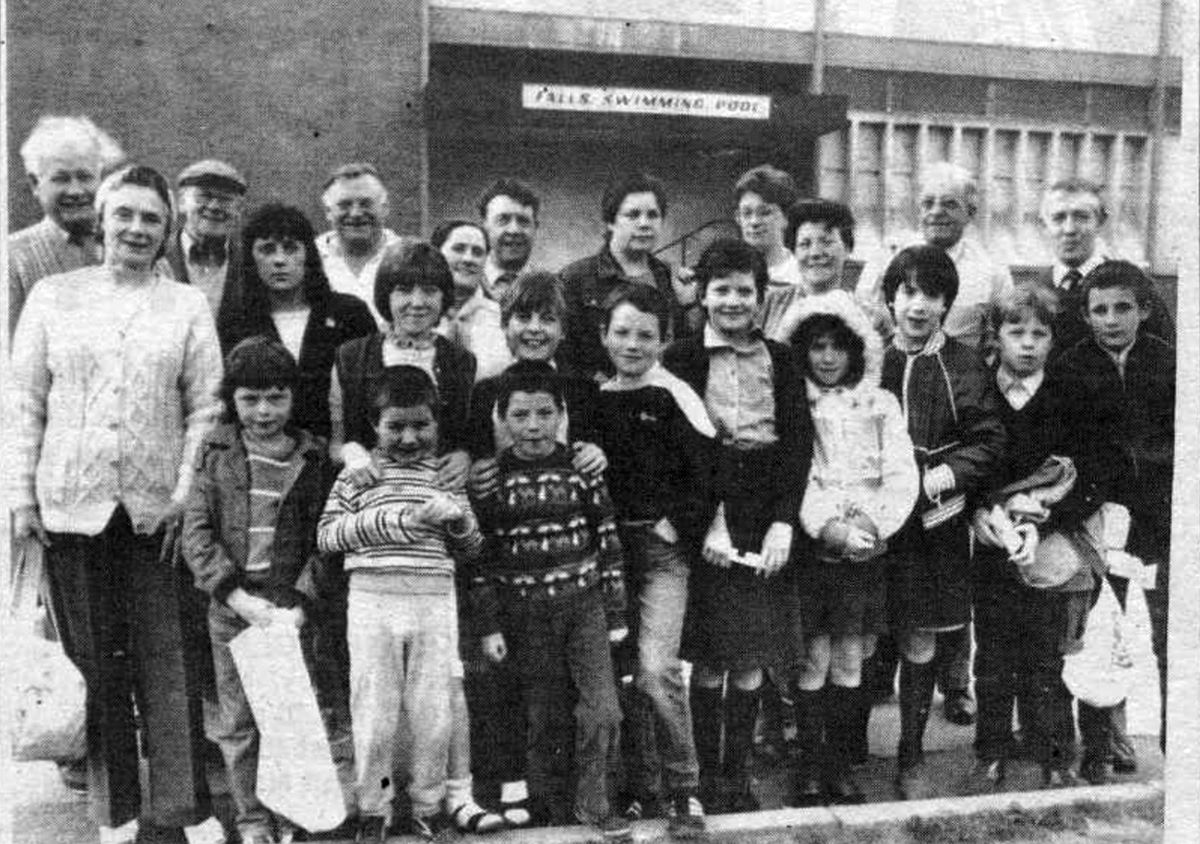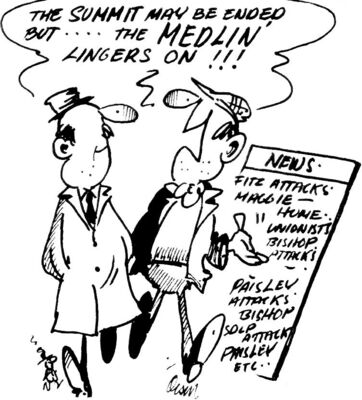We look at the stories that were making the headlines this week in 1983
Courts to force young people onto the streets
A revolutionary educational project set up in Divis Flats to cater for persistent truants, seems set to be dealt a death blow by the courts this month.
For over two years now the Divis Education Project has been tackling the massive truant problem in local secondary schools by offering an alternative, informal style of schooling.
Several teenagers who had been either persistent truants or expelled from school, were attending the project, known as 'Crazy Joe's', on a regular basis. Subjects taught included Irish, Irish history, social skills, English and Maths. Recently, however, the Belfast Education and Library Board clamped down on the flats' project and now, by taking legal proceedings against the parent of one pupil, hope to have the venture scrapped. The case against the Divis mother has been going on in Belfast's Magistrate Court for over two months now and a decision is expected on May 26th.
Despite evidence from Liz McWhirter, an educationalist psychologist at Q.U.B, and community workers, on behalf of the project, it is felt the judge will rule in favour of the B.E.L.B. Closure of the project under those circumstances seems inevitable. Said a project worker: "It's obvious the authorities want this place closed down because it shows up the shortcomings of the education system. It appears that on May 26th, the B.E.L.B. bureaucrats will have their way. For many of these youngsters it means a return to the streets.”
Nevertheless, other aspects of the Divis Education Project are proceeding apace. Just this week, three new posts involving adult education were advertised under the Action Community Employment Scheme.
All eyes are on the West for General Election
FOR the next four weeks, in the run up to the Westminster elections, West Belfast will be the focus of attention of the world's press, as they discuss and analysis the effect Sinn Féin will have on the election result.
And whether it will mean the final demise of the S.D.L.P. as the main party of the Nationalist population or a resurgence of that party which will stop the Sinn Féin onslaught that has been gaining momentum ever since the Bobby Sands election in Fermanagh/South Tyrone.

The election could not have come at a worse time for the S.D.L.P. with the New Ireland Forum barely off the ground, and the party leader dissipating his energy fliting from Dublin to Brussels and from Derry to Washington in an attempt to build up his statesman-like image, the party could find itself unable to get a vote out, which as any student of politics knows is 60 per cent of the battle in winning any election.
Sinn Féin on the other hand would seem to have the bandwagon rolling for them at the moment, with thousands of ordinary working class young people willing to spend long hours assisting them to get the maximum vote out.
In our view, Gerry Fitt will not have a significant effect on the result. West Belfast will nevertheless once more become the electoral cockpit in the Six Counties, not as it used to be between Unionist and Nationalist, but between the two wings of the nationalist population now fighting for supremacy.
Belfast prisoners in England
PATRICK Hill, one of six Irish men framed for the Birmingham bombings in 1974, has announced he will begin a hunger-strike on June 1 if there is no sign of their case being re-opened.
The six were convicted primarily on the basis of a forensic test which has since been discredited by its inventor.
There are at least 13 innocent people serving lengthy sentences in English jails, the majority having been convicted of bombings later claimed by the IRA.
Among the 51 republican prisoners in English jails are 19 men from Belfast. These are William Armstrong, Martin Brady, James Bennett, Liam Baker, Bobby Campbell, Tony Clarke, Anthony Cunningham, Richard Glenholmes, Paul Holmes, Brian Keenan, Bernard McCafferty, Ronnie McCafferty, William McLarnon, James Murphy, Paul Norney, Gerard Small, Peter Toal, Roy Walsh and Gerry Young.
All are held under top security ‘A’ conditions, often isolated from their comrades and are denied the right, available to ordinary prisoners and sentenced British soldiers serving in the Six Counties, to be transferred to prisons near their homes.








